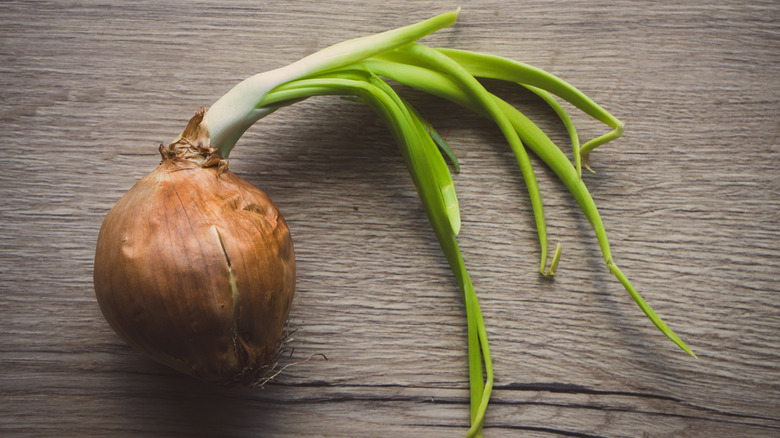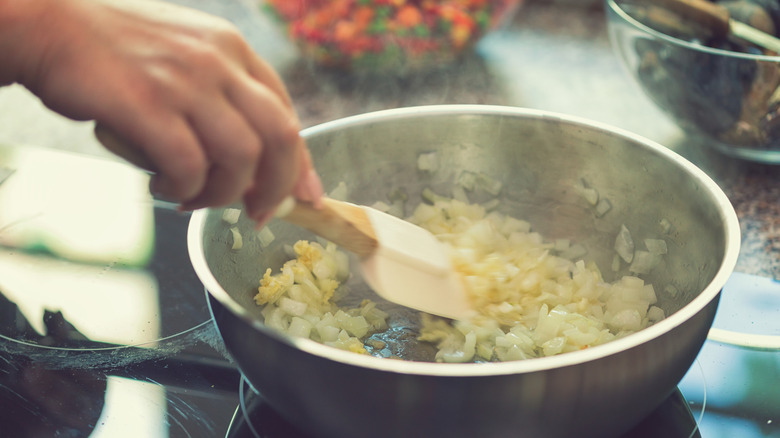Why Do Onions Sprout And Is It Safe To Eat Them?
It's happened to most cooks at one point or another. They reach into the pantry to grab that onion they've stowed away, only to find something more closely resembling a house plant than a recipe ingredient. Sprouting is a normal part of the life of this distinctive and versatile vegetable. However, the biggest concern among those with sprouted onions is typically whether they're safe to eat. The answer is yes, and a basic understanding of how it happens will explain why.
Like all plants, the main goal of an onion is to grow and reproduce. Sprouting is the first step of that process. It typically occurs when they're exposed to humidity, warm temperatures, and direct light. This simulates the spring-like conditions that would cause onions to sprout in the ground. In the process, the onion uses up some of its internal sugar and moisture to creature the sprout, meaning sprouted onions can often be a bit more bitter or drier.
Fortunately, this difference is generally harder to notice when you saute onions or otherwise cook them. Still, the process continues over time, so it's worthwhile to use your sprouted onion as soon as possible.
Avoiding sprouts and recognizing bad onions
Don't just toss out the green sprout. It's just as edible as the bulb and can be used in similar ways as scallions or green onions. Still, preventing sprouted onions isn't difficult for those who'd prefer to avoid it. Simply store them in conditions that discourage sprouting: cool, dry, and out of direct sunlight. This can include the refrigerator, especially in warmer climates or during hotter weather.
It's vital to distinguish between an onion that has sprouted, which is fine to eat but past its prime, and an onion that has gone bad. Signs an onion shouldn't be consumed include visible mold or discoloration, soft spots and bruises, or a putrid smell. These should be discarded or composted immediately for both food safety and quality reasons.
So, don't freak out the next time you notice some sprouted growth from your onion. Though they may not have the same flavor and freshness as unsprouted ones, they're perfectly safe to eat and generally only offer a marginal drop in quality.

